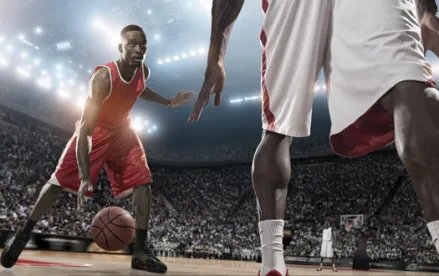The on-and-off effort at the National Labor Relations Board (NLRB) to classify “student-athletes” as “employees” has renewed. Although the National Labor Relations Act contains no formal recognition of student-athletes as employees, NLRB General Counsel Jennifer Abruzzo issued a memorandum on September 28, 2021 (GC 21-08) asserting
“her prosecutorial position” that certain players at academic institutions are employees pursuant to her personal interpretation of the Act.
Abruzzo also asserted her view that reference by schools to these student-athletes as anything other than employees is a misclassification of their status. Abruzzo asserted that such misclassification and reference to the term “student-athlete” has a chilling effect that misleads student-athletes to believe they are not entitled to the Act’s protection.
The GC will allege that misclassifying such “employees” as mere “student-athletes” is a violation of Section 8(a)(1) of the Act.
The ultimate goal of Abruzzo’s memorandum is to duplicate the effort of Obama-era NLRB General Counsel Richard Griffin. Abruzzo’s memorandum reinstates, adopts, and updates the reasoning from Griffin’s January 31, 2017 memorandum (GC 17-01), which was later rescinded by Trump-appointee General Counsel Peter Robb in GC 18-02. Arising out of Northwestern University football players’ attempts to unionize in 2015, the January 2017 memorandum concluded that scholarship football players met the broad interpretation of the Act’s definition of “employee” and the common-law test: that they (1) perform services for their colleges and the NCAA in playing football and generating millions of dollars in net profits and immeasurable positive reputational impact boosting admission applications and alumni donations; (2) are subject to the control of their college and the NCAA based on the NCAA’s strict rules and compliance requirements and additional controls at individual institutions; and (3) receive compensation in the form of valuable scholarships covering tuition, fees, rooms, board, books and additional stipends clearly tied to a player’s status and performance on the football field.
The General Counsel can only make arguments to the NLRB itself. It is the Board that decides cases.
In 2015, the NLRB declined to make a conclusive finding regarding the “employee” status of Northwestern’s players. A unanimous Board held, “[W]e conclude, without deciding whether the … players are employees under [the Act], that it would not effectuate the policies of the Act to assert jurisdiction in this case.” Northwestern University, 362 NLRB 1350, 1355 (2015). Thus, the NLRB punted: exercising their statutory prerogative to decline to extend jurisdiction of the law to the players, the Board avoided making a controversial decision.
Ultimately, Abruzzo hopes to encourage student-athletes to either seek the specific protection of rights as employees under the Act by filing unfair labor practices or by encouraging student-athletes to follow a similar approach that the Northwestern football players did in 2014 by filing a petition with the NLRB seeking to become unionized. Without specific recognition by the NLRB following either of these steps by the student-athletes,
Abruzzo’s memo lacks unilateral authority to carry out her goal of having university and college “employees” participating in the stadiums and arenas across the country.
The GC is hopeful that the newly seated Biden majority on the NLRB will see this issue differently.
Abruzzo seeks further support for her position by discussing recent developments in the law, NCAA regulations, and societal landscape that have changed the traditional notion of amateurism and support extension of protection under the Act to collegiate players. These developments include the U.S. Supreme Court’s unanimous decision in NCAA v. Alston finding NCAA rules violate antitrust law; the NCAA rules change in the face of numerous state laws allowing players to profit from their name, image, and likeness rights; and recent collective action taken by collegiate players related to social justice issues and the COVID-19 pandemic.
If the NLRB were to rule that players will be considered “employees” under the Act, it would be in conflict with other federal laws. A federal judge in Pennsylvania had denied a motion to dismiss claims by players that their college and the NCAA are joint employers under the Fair Labor Standards Act (FLSA) and are owed minimum and overtime wages. While the players cleared an initial hurdle in the FLSA suit, the decision cuts against rulings from other federal circuits that the players are amateurs, lacked an expectation of compensation and are not employees under the FLSA.
These other laws and other unaddressed issues still raise numerous questions even if student-athletes are formally determined to be employees by the NLRB. A few of these questions are:
-
Will the scholarships these “employees” are currently receiving from their schools because of their athletic prowess be considered income, subject to federal, state and local tax?
-
In addition to becoming subject to potential collective bargaining agreements like professional athletes, are student-athletes going to enter into individual employment contracts with their universities that can be terminated, via release for poor performance or injury?
-
Will student-athletes be willing to exercise their legal right to strike? If they do, what will happen to the status of their season if they are the only team to strike and they miss an extensive part of their season, especially for star players seeking to become professionals.





 />i
/>i
